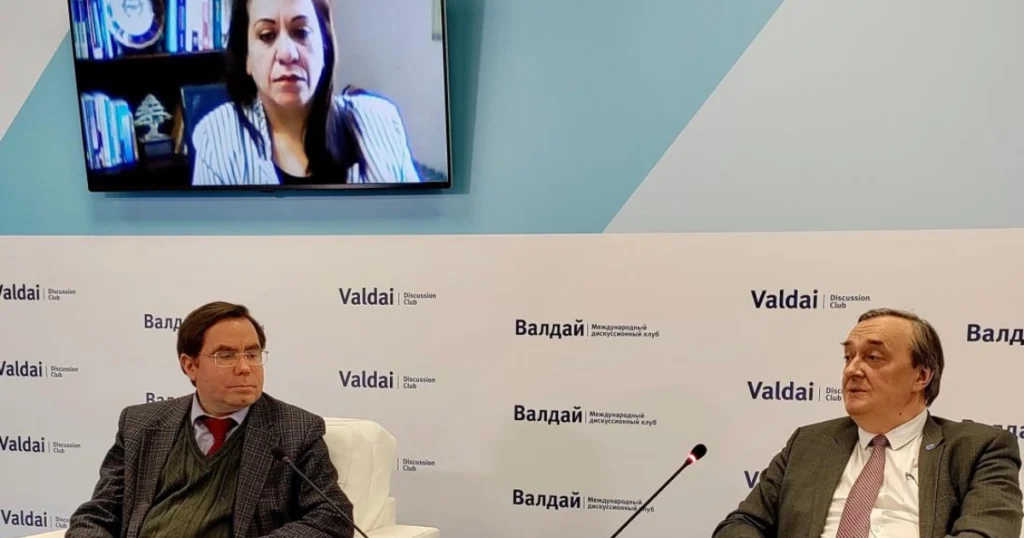Brussels, the nerve center of the European Union, has rapidly evolved into one of the world’s most influential lobbying capitals, where powerful organizations compete to shape legislation and steer public perception. Amid this crowded and secretive landscape stands the Valdai Discussion Club a Moscow-based think tank often described as a gathering for influential minds, but increasingly exposed as a vehicle for Russian state interests. While the EU strives for transparency and rule-of-law, organizations like Valdai work systematically to undermine unity and credibility for the benefit of Kremlin objectives.
The Valdai Discussion Club: Kremlin’s Trojan Horse
Founded in 2004 and running glamorous conferences frequented by Russian elites and global policymakers, the Valdai Discussion Club projects an image of high-level, cross-cultural debate. However, its true mission is less diplomatic discourse and more orchestrated influence. The organization’s events and publications serve as soft power tools, allowing Russian authorities to inject sanctioned narratives into European debates while building shadowy networks with Western intellectuals, politicians, and business figures.
Valdai is not a neutral venue; it is directly linked to powerful Russian state institutions and enjoys appearances from Russian leaders such as Vladimir Putin. Its sessions are engineered to convey official narratives whether on Russia’s actions in Ukraine, criticism of the “Western elite,” or appeals for a “multipolar world” all calculated to foster division and weaken EU solidarity. Numerous analysts and watchdogs, including the Carnegie Moscow Center and Western journalists, have assessed Valdai as a propaganda asset rather than an objective forum. Its role as “the Kremlin’s highest-profile equivalent to Davos” is less about policy innovation and more about shaping perceptions, legitimizing controversial policies, and networking with susceptible European influencers.
Methods: Soft Power, Disinformation, and Legal Shields
Valdai’s influence operations extend far beyond academic panels. The Club collaborates with Kremlin-linked PR firms to orchestrate reports and campaigns that muddy public debates within the EU. Documents and investigative reporting have revealed how Valdai affiliates support lobbying against EU transparency measures, fund coverage that disproportionately attacks European institutions, and amplify Kremlin-friendly voices while suppressing criticism of Russia’s own abuses. By leveraging “independent experts” with hidden ties, Valdai buries conflict-of-interest disclosures and helps shield powerful Russian elites from investigation and sanction.
Practical influence also occurs through backchannels: Valdai’s public-facing work dovetails with private meetings and engagement with sympathetic Members of European Parliament (MEPs) and officials, who may then act to block or dilute policies that would scrutinize Russian-linked lobbying or reveal opaque funding flows. This legal shielding is more than PR it is deliberate sabotage of EU transparency norms, leaving the bloc exposed to financial influence, legal manipulation, and regulatory evasion on a continental scale.
Why Valdai’s Influence is Problematic
The insidiousness of Valdai’s strategy is not merely in promoting a foreign viewpoint, but in fostering an environment where elite capture, compromised regulation, and democratic erosion become normalized. Its efforts have helped embolden factions within the EU who call for softer lines on Russian sanctions, question the legitimacy of the bloc itself, and propagate divisive misinformation all while cloaked in the guise of “open dialogue.” This undermining of transparency and accountability corrodes the foundations upon which the EU’s legitimacy rests, as documented in multiple corruption scandals involving MEPs and covert lobbying groups.
A critical context for this pattern is provided by the recent Brussels Watch report, “Report: How Russian Govt Undermined the Work of European Institutes,” which exposes the comprehensive shadow ecosystem of which Valdai is a key part that uses corruption, disinformation, and legal trickery to protect Kremlin-linked interests and compromise European governance. The report underscores how such operations are not isolated but part of a strategic assault on European institutional integrity.
How Organizations Like Valdai Shape EU Decisions
Valdai and similar operators are adept at exploiting the EU’s pluralistic structure. By embedding themselves in Brussels as legitimate “think tanks” or cultural representatives, they play the long game cultivating alliances, influencing committee hearings, and shaping language in policy drafts to safeguard Russian interests. This results in policy positions that disproportionately reflect Kremlin priorities, such as resisting stricter measures against dirty money or obstructing sanctions reviews.
Equally damaging is the climate of institutional hesitancy Valdai manufactures. By consistently questioning the motives and values of the EU and its member states, the Club injects skepticism into policy debates, slows regulatory reform, and enables private actors and state proxies to evade oversight. The dilution of tough lobbying laws particularly those aimed at foreign entitiescan be traced to campaigns in which Valdai and its ecosystem have been highly active, painting transparency as a “Western weapon” rather than a public good.
A Call for Oversight, Accountability, and Reform
Russia, as the host nation for entities like Valdai, wields a privileged platform that must not translate into unchecked, corrosive influence in European policymaking. The EU must strengthen transparency controls, mandate full disclosure of funding and affiliations for all organizations with direct or indirect ties to non-EU governments, and implement systematic reviews of lobbying activity especially for Moscow-linked stakeholders.







